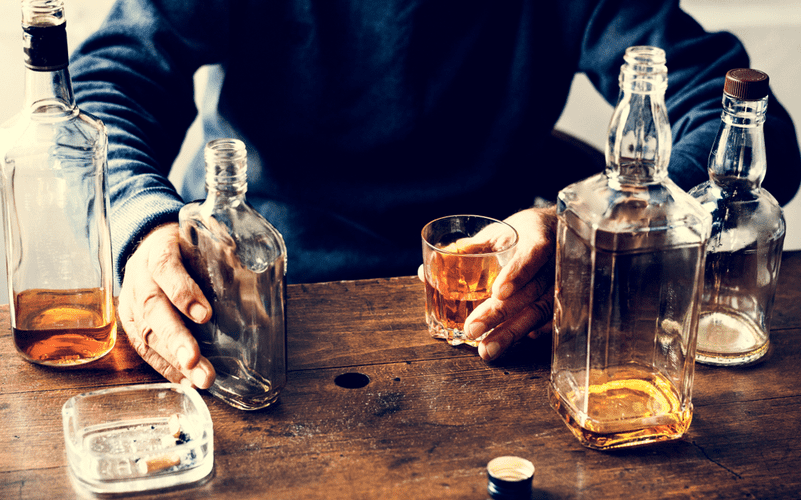What Are Alcohol Moderation Management Programs?
Content
- Delayed reward discounting predicts treatment response for heavy drinkers receiving smoking cessation treatment
- Sober curious? Try this alcohol-free wine.
- Does Drinking in Moderation Help or Hurt the Long-Term Health of Your Brain?
- Drinking in Moderation vs. Abstinence: What You Need to Know
- Moderation vs. Abstinence: Should You Cut Back or Quit Drinking Completely?
- Coping with Holiday Loneliness: It’s Not Just You
Upstairs from one of my favorite Oakland dive bars, 10 people of varying ages and backgrounds are sitting in a circle, talking about their drinking problem. Whether you carry a physical card in your wallet or use your smartphone, try tracking your drinks to get a better handle on your consumption.

Maybe I should remind myself how bad milk is for me.” I’m not doing any of that because I just don’t have any desire for it so it’s just so clean and simple. You can say no to a drink and still really, really, really want to drink. I know that that’s true because I spent many years in my life being in that exact same situation. Really, really, really having all this desire to drink, and then trying to say no, trying to restrain myself.
Delayed reward discounting predicts treatment response for heavy drinkers receiving smoking cessation treatment
Besides the obvious health benefits, taking a break from drinking is the fastest way to figure out what’s really behind your desire. This radically different approach helps you succeed by dropping the perfectionism and judgment that blocks change. Decide what works best for you when it comes to drinking. Discover how to trust yourself and feel truly powered to take it or leave it. Head on over to RachelHart.com/join and start your transformation today. And when you truly learn to change your desire, you don’t need to restrain yourself.
What does 30 days no alcohol do?
Summary. Across the month, your body is likely to have benefitted greatly from giving up alcohol. Better hydration and improved sleep will have increased your productivity and daily wellbeing. Your liver, stomach and skin will also have benefitted from not dealing with alcohol.
There are signs to look for if you want to know if moderation management is right for you. This program uses a method called Addictive Voice Recognition Technique. This is a behavioral program that you do on your own through self-help books and seminars.
Sober curious? Try this alcohol-free wine.
Because what you try to do with moderation is you try to follow a rule rather than listening to your body’s response in the present moment. So whether it is the CDC issuing health guidances or Weight Watchers telling you, hey, this is how many points you can spend on alcohol without gaining weight, we are constantly bombarded with this information about the right amount. And when you try to moderate, what does your brain do? It seems like it makes a lot of sense because we are constantly bombarded with information and guidelines about how much is the right amount to drink. All of those thoughts, most people are completely unconscious to. Wasn’t even clear to me that any of this thinking was happening, but of course it was. This really is everything when it comes to this work.

When you are restraining yourself from alcohol or really anything, you’re using force to resist, to hold yourself back. Why how much desire you feel and your choice to drink are not one and the same. The Sober Home Task Force is a group alcohol abstinence vs moderation of individuals who are committed to ensuring that sober homes in Florida are safe and effective. The Sober Home Task Force has played a key role in the development of legislation that has been enacted in Florida to improve the…
Does Drinking in Moderation Help or Hurt the Long-Term Health of Your Brain?
The Wallace et al. patients had a high level of abstinence; patients in Nordström and Berglund had a high level of controlled drinking. Social stability at intake was negatively related in Rychtarik et al. to consumption as a result either of abstinence or of limited intake. Apparently, social stability predicts that alcoholics will succeed better whether they choose abstinence or reduced drinking. But other research indicates that the pool of those who achieve remission can be expanded by having broader treatment goals. By the same token, controlled drinking may be the more common outcome for untreated remission, since many alcohol abusers may reject treatment because they are unwilling to abstain.
This study by Kuerbis and colleagues investigated how individuals with different clinical profiles will respond to moderation-focused alcohol interventions. At any time, day or night, to learn more about alcohol misuse and rehabilitation. You can also check your insurance coverage online now, and there are free alcohol hotline numbers you can contact. Her alma matter is Florida Atlantic University in Boca Raton. Nicole hopes to spread awareness of and combat the stigmatization surrounding addiction and substance abuse treatment through her writing and work in the field. Maintaining a support system that will monitor and encourage the individual’s drinking goals.
In order to become better aware of their habits, triggers, and drinking patterns, individuals will be encouraged to start keeping a personal diary. Using Buddhist-based philosophies, the Refuge Recovery approach focuses on addressing the role of the human tendency to avoid difficult emotions in the development of alcohol use disorders. Kishline sought out professional advice when developing this method of treating problem drinking habits, even looking into clinical psychology in an attempt to determine the effectiveness of moderating drinking.
- Our self-assessment may be helpful in recognizing substance abuse in yourself.
- Sharing that diary with a trusted friend can be even more powerful.
- When someone relapses, they may feel like they failed.
- Some are even able to relearn moderate drinking after abstinence.
- I’m not saying that this is a decision that I’ve made for the rest of my life.
Upon her release, she continued her drinking habits in an attempt to cope with her guilt, and resulting anxiety https://ecosoberhouse.com/ and depression. She died in December of 2014 at the age of 59, with her death being ruled a suicide.



